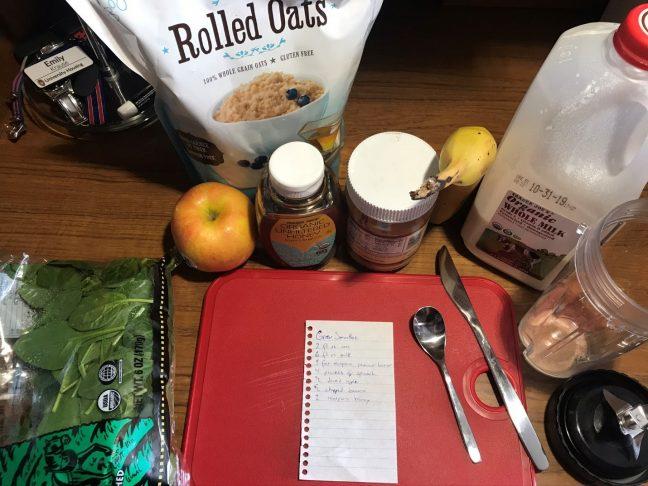Whether you buy organic food or not, you have probably heard about it in the news in the past week. Last Tuesday, Stanford University Medical School published findings from a study comparing organic versus conventional food.
The media has jumped on this story due to the university’s conclusion that “the published literature lacks strong evidence that organic foods are significantly more nutritious than conventional foods.” This statement alone sounds quite negative, and your morning news show has likely capitalized on it, calling it a waste of time to buy organic meat and produce.
However, looking at the actual scientific literature, it becomes clear that buying organic produce still has benefits, and is supported by this study and others. Read on to find out what all the hype is about this study and why everything you have heard may not be 100 percent true.
To start off, according to the USDA, “organic” food must be grown or raised in an environment with minimal exposure to pesticides, herbicides, fertilizers, antibiotics and hormones. The logic behind organic farming is by minimizing our exposure to these chemicals, we can eat healthier and reduce the growth of “super-bug” microorganisms resistant to antibiotics.
The hype over the Stanford University study has mainly centered on the fact the results did not show a difference in vitamin or mineral content between organically farmed meat and produce and conventionally grown products.
However, to most other scientists and organic food enthusiasts, this finding is not surprising. Fruits and vegetables reach their maximal nutrient content based on their level of ripeness before harvesting and the extent of decay that occurs between harvest and consumption. Essentially, produce will contain the most nutrients if it is harvested at the peak of ripeness and eaten on the spot. This has nothing to do with the growing process, but rather the harvest and distribution process.
By looking at the vitamin and mineral content alone, it is easy to be fooled into thinking that organic food is no better than conventional food. But there are many other factors to consider which affect overall health and well-being.
For instance, the study did find that organically grown meats were less likely to contain antibiotic-resistant bacteria, and organic milk was more likely to contain higher levels of essential fatty acids than conventionally raised meats, a finding that other similar studies have supported as well. These fatty acids, like omega-3 and omega-6, are important for heart and cardiovascular health.
However, the greatest result, which has been overlooked, was 38 percent of conventional produce tested contained traces of pesticide residue compared to only 7 percent of organically grown produce tested. The study did not report this finding as “significant” because the pesticide residue levels in both types of produce ranked below the “safe threshold level” of the Environmental Protection Agency.
Many people in the health industry have asked whether there is, in fact, a safe level of pesticides for someone to consume. Studies conducted by Colombia University and University of California at Berkley linked higher fetal exposure to chemical pesticides to lower IQ later in life.
The use of the phrase “significantly more nutritious” in the study’s findings has also raised questions. Does something really have to be “statistically significant” to help or harm your health? Many people in the health and scientific communities say, “no.” To them, minimizing the levels of antibiotic resistant microbes and pesticide exposure to any degree should be viewed as beneficial.
The media may have leapt into a frenzy around this story, but don’t be fooled. When buying organic produce and meats, there are still benefits for your health and reasons to pay the extra pennies. For many, the reason is simple, subjective and untestable – organic food simply tastes better!
If you are interested in trying organic produce, but are nervous to make the change or don’t have the biggest food budget, here is a list of the Environmental Working Group’s highest and lowest pesticide-exposed fruits and vegetables. The high exposure, or “dirty dozen,” group contains the best fruits and vegetables worth spending the extra money on to lower the risk of pesticides. The “clean fifteen” is the group reported to have the lowest levels, which makes it a better bet to save money and buy conventional.
The “dirty dozen” includes apples, celery, sweet bell peppers, peaches, strawberries, imported nectarines, grapes, spinach, lettuce, cucumbers, blueberries and potatoes.
The “clean fifteen” includes onions, sweet corn, pineapples, avocado, cabbage, sweet peas, asparagus, mangoes, eggplant, kiwi, cantaloupe, sweet potatoes, grapefruit, watermelon and mushrooms.
Don’t believe everything you read in the magazines or see on TV. Frequently, the hard truth about nutrition is hidden in the fine print and backed by real science.
Recipe of the week
This week’s recipe is a combination of the dirty dozen and the clean fifteen and is sure to be easy on your wallet while pleasing your pallet.
Pineapple salsa
Yield: 8 servings
Ingredients:
1 cup finely chopped fresh pineapple
1/2 cup diced red bell pepper
1/2 cup diced green bell pepper
1 cup sweet corn (can be frozen)
1 (15 ounce) can black beans, drained and rinsed
1/4 cup chopped red onions
1-2 jalapenos, chopped
1/4 cup orange juice
1/4 cup chopped fresh cilantro
1/2 teaspoon ground cumin
salt and pepper to taste
Toss all but last 3 ingredients in a large bowl, then add cumin, salt and pepper. Cover and chill in the refrigerator before serving.





















